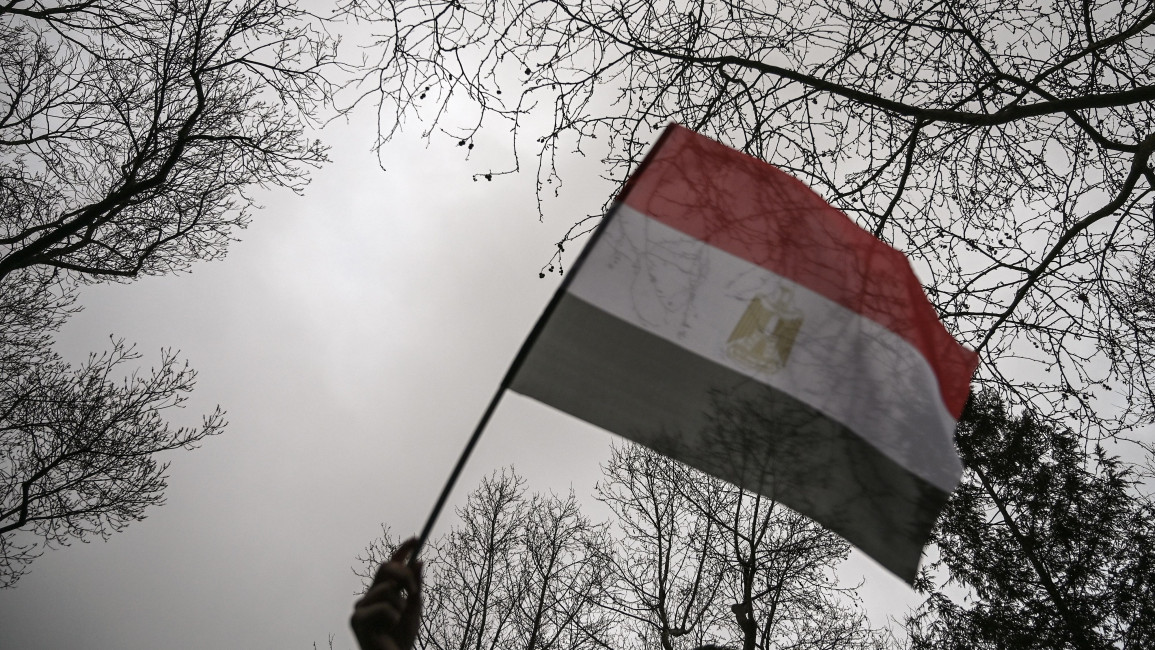Activists freed but Egypt repression still 'systematic'
Egypt has recently freed several prominent political detainees, raising hopes for an easing of a sweeping crackdown on dissent. But for rights activists, repression remains "systematic" and there is no relaxation in sight.
The Arab world's most populous country, with 102 million residents, draws regular criticism over its rights record.
President Abdel Fattah al-Sisi has progressively silenced dissent, but last year it appeared things were changing.
Sisi was elected in May 2014 after leading the military ouster of elected Islamist president Mohamed Morsi the previous year.
In 2021, however, he ended a years-long state of emergency and the laws and special tribunals that went with it.
Then several rights activists and political dissidents -- liberal and Islamist -- were released.
They have included Italian-Egyptian researcher Patrick Zaki, who was freed from pre-trail custody in December, and Egyptian-Palestinian activist Ramy Shaath, who arrived in France this month after more than two years in detention, in exchange for renouncing his Egyptian citizenship.
But at the same time, Egypt's most well-known political detainee, Alaa Abdel Fattah, a leading figure in the 2011 revolution that toppled longtime ruler Hosni Mubarak, was sentenced to five years in jail.
Another 2011 activist, former MP Zyad el-Elaimy, received an identical sentence, while other activists were also jailed -- with hard labour.
New repressive laws took effect, including a requirement that non-governmental organisations register with the authorities before mid-January or be dissolved.
Human Rights Watch says this "is complicated and burdensome, requiring hundreds of pages of documentation of past activities, funding sources, and planned activities".
The process is not guaranteed, either.
"Registration is not final until the Social Solidarity Ministry publicly approves the group's registration," the US-based watchdog said.
Another group, the Arabic Network for Human Rights Information, said it was informed in October that it could not register under its current name.
ANHRI was one of the largest and oldest rights groups in Egypt, but it shut its doors on January 10 after an 18-year history through which it had seen three presidents, a popular revolution and the military overthrow of a head of state.
For Human Rights Watch, "Egypt's superficial attempts to create an impression of human rights progress failed to disguise the government's brutal repression of all manner of dissent in 2021."
There is, it said, "no end to systematic repression".
Sisi completely rejects such accusations.
Receiving journalists this month, he fired back: "Do you like our people more than we do? Are you more concerned for our country than we are? Here we have nothing to eat. Are you ready to help us?"
In September, he presented his "national strategy for human rights" while accusing international rights groups of not knowing the full spectrum of "challenges facing the country".
Among the principles of his strategy is the consideration that education, health or electricity are more important than freedom of assembly -- which is virtually forbidden in the country.
Announcing the suspension of its operations, ANHRI cited "growing violations against human rights" and "an increase in police harassment, whether under a legal or judicial pretext or through explicit persecution".
Gamal Eid, ANHRI's founder, said the group was told it could no longer work on its fundamental issues of freedom of expression or prison conditions.
"We refuse to become an organisation that works on unimportant issues, and we will not become a complicit organisation," Eid said, referring to NGOs that "polish the image of the government".
Eid says the authorities have harassed him for years. He has been beaten and warned to "behave" himself, his colleagues have been detained, and he remains under a travel ban with his assets frozen.
Rights groups say many other activists face such restrictions, though they are free, while the country holds about 60,000 political prisoners in custody.
Amnesty International and around 20 other civil society groups referred to the Egyptian government's "abysmal human rights record", which has left "peaceful activists, human rights defenders, lawyers, academics, and journalists detained for exercising their rights to freedom of expression, peaceful assembly and association".
Conservative Egyptian society has also provided authorities with another tool to silence people: debauchery charges over online content. About a dozen social media influencers have been arrested since 2020.
Yet the crackdown does not stop at individuals, HRW said.
"The authorities extended repression to advocates abroad by arresting and sometimes 'disappearing' family members in Egypt," it said.
"The international community cannot afford to let the state's decimation of Egypt's once vibrant civil society continue," the group added.



